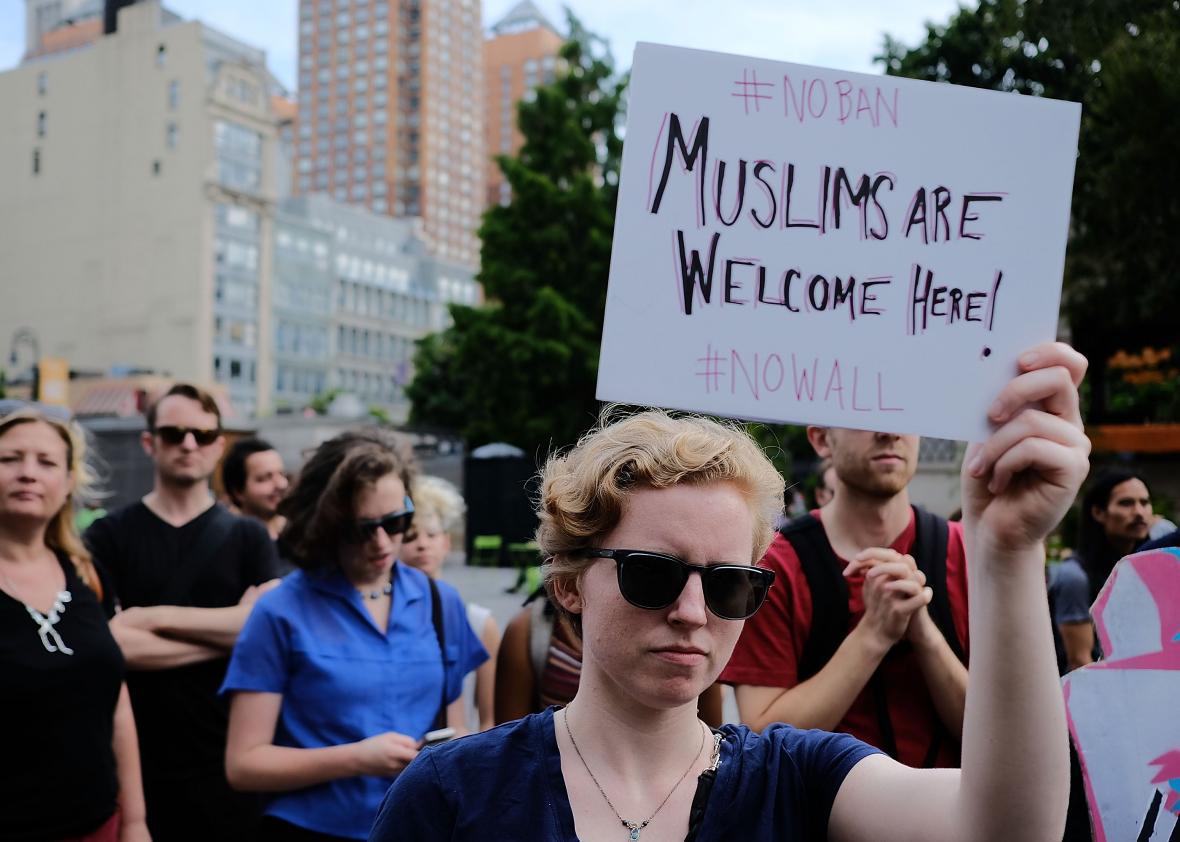The U.S. Supreme Court is making something of an art form of splitting the baby when it comes to President Donald Trump’s endlessly litigated travel ban. On Wednesday afternoon, the court handed down an unsigned, brief order in response to recent efforts by the state of Hawaii to clarify the reach of the White House’s second executive order on immigration. Slicing the salami yet again, the high court gave the Trump administration a qualified win on restrictions on refugees and gave Hawaii a resounding victory on what constitutes “family” for visitors from the six specified majority-Muslim countries.
The March 6 version of the travel ban had called for a 90-day pause on travel to the United States from those majority-Muslim countries and a 120-day hiatus on refugee resettlement. It was enjoined by a federal judge in Hawaii last spring and the 9th U.S. Circuit Court of Appeals upheld the injunction. Back in June, on the last day of its term, the high court agreed to wade in to hear the challenge to the travel ban. In the meantime, the court upheld portions of the injunction entered by a federal judge in Hawaii, while allowing travelers with a “bona fide relationship” to U.S. persons to continue to travel while the litigation is pending. The court, though, forgot to tell us what a “bona fide relationship” entails. The Trump administration issued guidance explaining that for their purposes, “close family” would be limited to parents or parents-in-law, a spouse, children, siblings, and step- and half-siblings. (Subsequently, they added fiancées as a protected group.)
Judge Derrick Watson of the United States District Court for the District of Hawaii issued an order last week holding that this definition of close family for the purposes of exclusion from the ban was too narrow. In his order, he defined grandparents, grandchildren, aunts, uncles, nieces, nephews, cousins, brothers-in-law and sisters-in-law, and any other “extended” family members as the kind of close family insulated from the ban. Watson also found that the provisions of the executive order that applied to refugees would not go into effect for any refugees who already had “formal agreements” with an American resettlement agency, a determination that would have greatly increased the number of refugees who could be admitted to the U.S. this summer.
In its one-paragraph unsigned order, the court denied the Trump administration’s motion to clarify Watson’s order, meaning his more expansive definition of a bona fide family connection will stand. The court then added a sentence to say it was staying the refugee portion of Watson’s order until the 9th Circuit hears the appeal. No reasoning or explanation was offered.
The same three justices who said in June that they would have lifted the entire injunction and that President Trump’s appeal would likely succeed on the merits again disagreed with the majority. The order notes that Justices Clarence Thomas, Samuel Alito, and Neil Gorsuch would have granted the administration’s request to stay the entire district court order.
The next stop for this litigation? The 9th U.S. Circuit Court of Appeals, which will hear the whole matter before it gets back to the Supreme Court. Arguments at the high court have now been set for Oct. 10.
